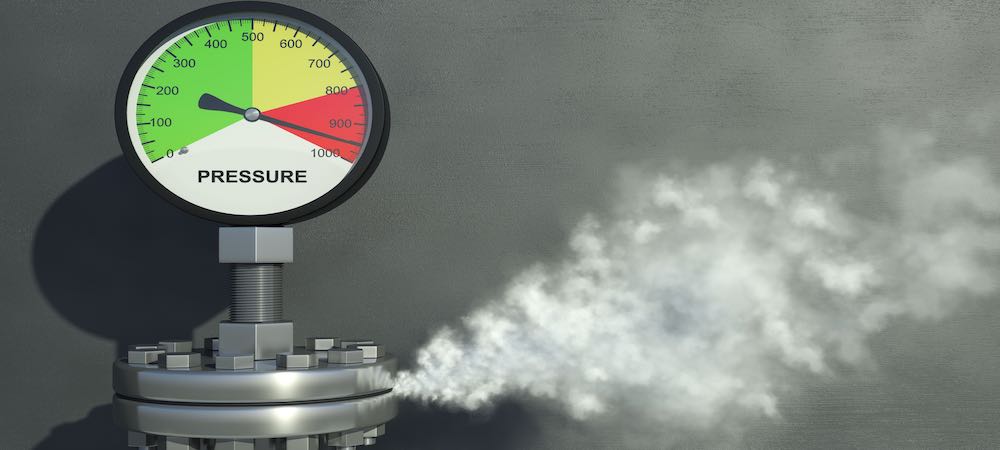
21 May What Does A Gas Leak Smell Like
Gas Leak Overview
Many people are aware that natural gas is a popular choice of energy for cooking, heating, and generating electricity. In the U.S., greater than 65 million homes make use of it or liquid propane. But what is it, what does it smell like, and why does it smell that way? The following is a look at natural gas, what it smells like, and other ways to detect it.
The Scent of Natural Gas
What does a gas leak smell like? The scent is a common question when people detect the unusual odor and worry about its source. The truth is that in and of itself, natural gas is odorless. This efficient, colorless, safe-to-use gas is a non-renewable hydrocarbon that has a harmless gas added to it; this combined gas smells pungent. It is known as mercaptan or methanethiol, and its odor is like that of rotten eggs, rotting cabbages, or, more technically, hydrogen sulfide.
The Reason for Using Marcaptan in Natural Gas
Natural gas needs an additive such as mercaptan to make gas leaks easy to detect. Anyone who has ever smelled sulfur knows that it is distinctive and grabs the attention right away. Mercaptan is a sulfur compound that is less toxic and corrosive than its related compounds: those found in onions, garlic, rotten eggs, skunks, and bad breath. Generally, mercaptan lives in different forms in things that people find to have unpleasant odors.
Importance of Early Detection of Gas Leaks
Gas leaks are vital to detect early. If a person does recognize one, evacuation is necessary. Everyone should rely on experts to locate leaks. At the right levels, the presence of natural gas in the air can be lethal. It is also highly combustible. This means that it is capable of producing heat in large amounts when burning only small quantities. Because of this, natural gas leaks can increase the risk of explosion or fire with its capacity for quickly spreading and easily combusting. When inhaled, high concentrations can lead to asphyxia; symptoms of this include chest pain and fatigue.
Detect With Your Eyes
In the yard, dead or dying, drying grasses or plants in an otherwise moist area can indicate a gas leak. A patch of vegetation that is dead may be a sign of gas leaking beneath the soil. Exposed pipelines after disasters such as floods, fires, or earthquakes can also be a warning. Look for fire or explosions near pipes, debris like dirt or water blowing into the air, or a natural gas appliance that has a damaged connection. You need not trust your nose if your eyes pick up any of these clues.
Detect With Your Ears
There are not as many audible cues to gas leaks as there are visual ones. However, an unusual sound can be indicative of a gas leak. These sounds will be whistling, hissing, or roaring near an appliance or natural gas line.
Test An Area for Visual Cues
There is a quick method to see if a gas leak is present with the bubble test. It also works for other objects containing pressurized gas such as inner tubes, tires, and propane tanks. The steps are simple. First, the person testing needs a large container of water and a small amount of dish soap. Then, the gas needs to be double-checked: is it on? If it is, take a sponge or cloth to wipe down the area where a leak may be present. If small bubbles begin to form, there is a leak. Another place to check for bubbles is in any wet area about the home; if an onlooker sees bubbles, an underground gas leak may be present.
Isn’t Natural Gas Safe?
Natural gas is among the safest of gases when used correctly. Unfortunately, leaks do happen. Sometimes appliances or pipes need repair, something may have been nudged with too much pressure, or something may have been hooked up incorrectly or carelessly. Wherever the fault lies, this gas can cause carbon monoxide poisoning in animals and people.
Symptoms of Gas Leaks
A gas leak will change how much oxygen is available. As a person takes in smaller amounts of oxygen, symptoms can start to develop. A gas leak may be present when someone in a family, or more than one person, begins to exhibit sudden and unexplainable symptoms. These symptoms include dizziness, headache, irritation of the eyes and throat, nausea, problems with breathing, fatigue, and even blisters or pale skin from skin contact with liquid or compressed gas.
Because of the dangers associated with gas leaks, when one is detected, people should immediately vacate the area and call an expert. For obvious and severe problems, contact a local emergency gas leak number. For smaller issues, hire an expert such as a plumber from Benjamin Franklin Plumbing to tackle the issue.
Benjamin Franklin Plumbing Tyler serves the East Texas cities of Kilgore, Longview, Tyler, and Whitehouse with a team of certified plumbers. In addition to emergency plumbing repair, some of the plumbing services provided by the company include faucet repair, drain services, toilet repair, plumbing fixture installations, tub and shower installations, kitchen sink repair, faucet installation, water heater repair/replacement, and garbage disposal replacement. Call us today at (903) 730-6611 to schedule an appointment!

